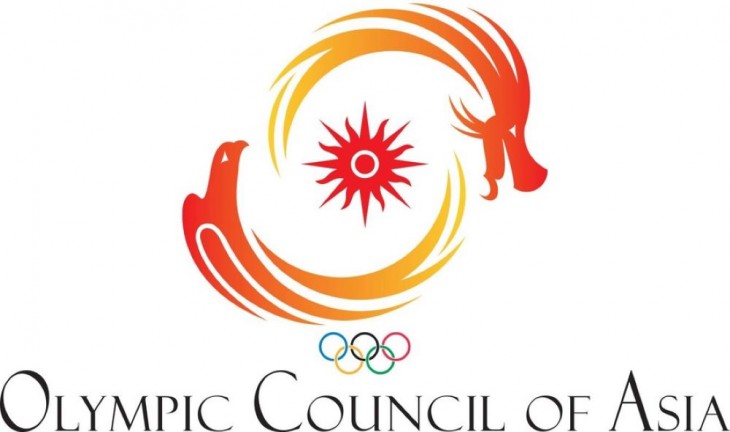Politics in sports
17.02.2023


Julia Plesovskikh
Radik Amirov: "There is nothing strange or terrible about the fact that Russia can leave the European sports federations and join the Asian federations"

-
Members of the discussion:
23 -
Last reply:
more than a month ago
On January 26, the Olympic Council of Asia invited Russian and Belarusian athletes to take part in the Asian Games, which will be held from September 23 to October 8, 2023, in China. This tournament can help athletes qualify for the Summer Olympics in Paris. RIA Novosti special correspondent Radik Amirov told OSPORT about the possible consequences of Russia's participation in the Asian Games and the probable reactions of some countries to this transition.
-To what extent are the Asian Games a good alternative for qualifying for the Olympics?
- History says that there is always an alternative. Back in 1986, the Goodwill Games were organized in Moscow as an alternative to the 1984 Olympic Games in the USA. Many countries, mostly socialistic, took part in this competition. Not only they, but also representatives of capitalistic countries visited the capital of the USSR 4 decades ago by their own initiative. Some of them didn’t make it to the national team (like France or Italy), some just wanted to keep their shape and others came to express solidarity to the Soviet Union.
I think this is a good alternative, considering that Russia is still Asian in its location rather than a European country — most part of Russia is geographically located in Asia.
-How can Russia's participation in the Asian Games affect its relations with European sports federations?
- Each sports federation is independent, and sports communities (FIFA, UEFA) are voluntary organizations: if you want – you can join them, if you want – you can leave. Therefore, there is nothing strange or terrible in the fact that Russia can leave the European sports federations and join the Asian federations.
In addition, it should be taken into account that Russia is one of the most powerful sponsors of sports federations in Europe (for example, Gazprom). With the absence of Russia Europe is losing a huge donor.
-What should Russian sports authorities do in case of a possible boycott of the Asian Games by such unfriendly to Russia countries as Japan and South Korea?
- Japan and South Korea have always been wary of Russia. Japan, for example, mixed sports and politics by talking about the so-called "the return of the northern territories" (the Kuril Islands).
Russian sports authorities in case of a boycott of Japan and South Korea do not need to sprinkle ashes on their heads. In the Asian Games, the key role is played not by these two states, but by other representatives of the Arab-Muslim world, significant in terms of financial and political opportunities — Qatar, Kuwait, Saudi Arabia, the United Arab Emirates, Bahrain. Considering that Japan and South Korea are not members of the Organization of Islamic Cooperation (OIC) and Russia is represented there as an observer, we can definitely say for sure that despite the fact that the opinions of Japan and South Korea will be taken into account, Russia plays a much more important role for Islamic states than Tokyo and Seoul. Moscow can offer its own conditions (first of all, economic ones), and the organizing committee of the Asian Games will take them into account.
-To what extent are the Asian Games a good alternative for qualifying for the Olympics?
- History says that there is always an alternative. Back in 1986, the Goodwill Games were organized in Moscow as an alternative to the 1984 Olympic Games in the USA. Many countries, mostly socialistic, took part in this competition. Not only they, but also representatives of capitalistic countries visited the capital of the USSR 4 decades ago by their own initiative. Some of them didn’t make it to the national team (like France or Italy), some just wanted to keep their shape and others came to express solidarity to the Soviet Union.
I think this is a good alternative, considering that Russia is still Asian in its location rather than a European country — most part of Russia is geographically located in Asia.
-How can Russia's participation in the Asian Games affect its relations with European sports federations?
- Each sports federation is independent, and sports communities (FIFA, UEFA) are voluntary organizations: if you want – you can join them, if you want – you can leave. Therefore, there is nothing strange or terrible in the fact that Russia can leave the European sports federations and join the Asian federations.
In addition, it should be taken into account that Russia is one of the most powerful sponsors of sports federations in Europe (for example, Gazprom). With the absence of Russia Europe is losing a huge donor.
-What should Russian sports authorities do in case of a possible boycott of the Asian Games by such unfriendly to Russia countries as Japan and South Korea?
- Japan and South Korea have always been wary of Russia. Japan, for example, mixed sports and politics by talking about the so-called "the return of the northern territories" (the Kuril Islands).
Russian sports authorities in case of a boycott of Japan and South Korea do not need to sprinkle ashes on their heads. In the Asian Games, the key role is played not by these two states, but by other representatives of the Arab-Muslim world, significant in terms of financial and political opportunities — Qatar, Kuwait, Saudi Arabia, the United Arab Emirates, Bahrain. Considering that Japan and South Korea are not members of the Organization of Islamic Cooperation (OIC) and Russia is represented there as an observer, we can definitely say for sure that despite the fact that the opinions of Japan and South Korea will be taken into account, Russia plays a much more important role for Islamic states than Tokyo and Seoul. Moscow can offer its own conditions (first of all, economic ones), and the organizing committee of the Asian Games will take them into account.
Discussion
More on the topic
More on the topic
